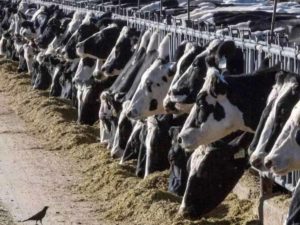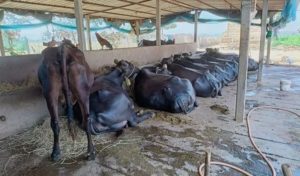”The heat has been quite something and it can be stressful but small things can help out by giving shelter and it can be cooler in paddocks with irrigation,” South Canterbury Federated Farmers dairy chairman Ads Hendriks said.
Pasture growth had been variable in the last month, he said.
Some farmers would be reducing milkings.
”Times can be adjusted; one farmer has a system of milking three times each two days. It seems to be working.”
The sector faced a large variety of issues from Mycoplasma bovis through to adjusting to a new government, resource consents, compliance requirements and proposals of a capital gains tax, Hendriks said.
”In general it’s pretty good; there has been a stand back attitude when we got the change of government.”
Mid Canterbury Federated Farmers Federated Farmers president Michael Salvesen said his district had ”dried out remarkably quickly”.
”Many dairy farms are on 16-hour milking or even once a day, to try to manage the production from the herd to the available grass on the farm.
”There is also a lot of grain and silage/baleage being fed to supplement the very tight grass supply and to try to keep to the farm rotation.
”In the high country the biggest risk is fire, with the large amount of long dry grass around after the wet spell before Christmas. Most of this is now very dry and therefore extreme care is needed in all these areas.”
Cropping farms had had great harvest opportunities, although yields were lower than hoped mainly because of the cool and very wet pre-Christmas period, Salvesen said.
There were concerns about the fairness of irrigation allocations – those who had been irrigating longest had fewest restrictions, he said.
The region should be through the worst as the days got shorter and cooler, ”although it always takes a while to recover”.
North Canterbury Federated Farmers dairy chairman Michael Woodward said dairy farms in his area were irrigated, but the cows were often wintered on dryland farms.
There was potential for crops on those blocks to be down on yield, which would also push up feed prices.
Central Plains Water had provided ”a lot more certainty for those farms”, Woodward said.
Drystock farmers had made of lot of supplement earlier in the season, allowing them to replenish supplies depleted in the previous drought.
Their stocking rates were also probably lower, so he hoped they had been able to build up stockpiles.
Planning ahead and being proactive were vital for withstanding dry conditions, he said.
North Otago Federated Farmers dairy chairman Jared Ross said some farmers in the area were on 16-hour milkings, ”generally in response to production and cow condition”.
”For most, it’s business as usual.”
And while mating results were ”a wee bit of a concern” for some farmers, those in the top quartile were considerably up on last year.
The average was up 1 per cent.










